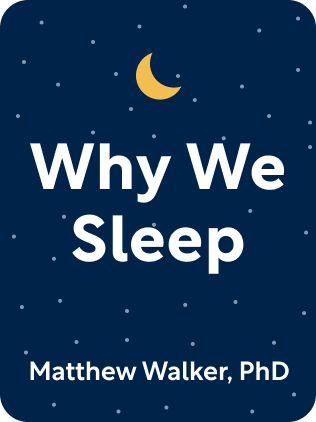

This article is an excerpt from the Shortform summary of "Why We Sleep" by Matthew Walker. Shortform has the world's best summaries of books you should be reading.
Like this article? Sign up for a free trial here .
Do kids and teens need more or less sleep than adults? How much sleep do kids need for optimum cognitive development?
In his book Why We Sleep, Matthew Walker discusses the different amounts of sleep the body requires at different stages in life. As it turns out, there can be serious developmental implications if a child doesn’t get enough sleep at night.
Here is what Matthew Walker had to say about sleep in children and teens.
Sleep in Childhood
While they’re born with very irregular sleep patterns, babies eventually show more regular sleep patterns starting at four months, as their suprachiasmatic nucleus—the part of the brain that controls circadian rhythms—develops.
With age, total time sleeping decreases, and the fraction of time spent in REM sleep decreases. Walker explains that now that the synaptogenesis of REM tapers off, NREM plays a larger role in brain refinement, pruning the associations that are most valuable and unique to that child’s life.
He says NREM actually causes cognitive development in children—changes in deep NREM sleep always come before cognitive milestones, up until the final cognitive milestone in late adolescence, which is the development of rationality in the frontal lobe.
| How to Deal With Bedwetting NREM sleep is vital to a child’s cognitive development, so it’s important to manage sleep disruptions like bedwetting, or nocturnal enuresis. This childhood problem has various causes, including sleep apnea, and can make it difficult for both child and parent to go back to sleep after cleaning up. It’s estimated that 25% of five-year-olds wet the bed at least once a month. If both you and your child are losing sleep over this, The Sleep Foundation lists some ways to help you address the problem: Ask your child if anything is making him worried or sad to help you determine if the cause is something emotional or psychological. Remember that bedwetting is unintentional, so be supportive and don’t punish him for it. Keep a bedwetting calendar and reward him for milestones (e.g., one full week with no bedwetting). While punishment can hurt, giving rewards may help. Have a regular sleep and wake-up time. Make sure he’s hydrated throughout the day and try to keep him from drinking anything an hour or two before bedtime. Talk to your pediatrician to determine possible underlying causes. |
Sleep in Teens
When discussing how much sleep kids need, it’s also important to talk about their teen years. In puberty, teens develop a later biological clock than adults, preferring to stay up later and wake later. This isn’t just teens being rebellious—it’s in their biological nature. Asking teens to sleep at 10PM is like asking adults to sleep at 7PM.
Walker theorizes that this is evolutionarily helpful for teens to gain independence from their parents (having time to be awake while their parents are sleeping). Moreover, teens do so collectively, and so they get private time to socialize.
(Shortform note: Research from the University of Michigan seems to support this, suggesting that teens are hormonally driven to stay up late to socialize with peers away from adults.)
Unfortunately, in modern-day, schools start at a very early hour (largely to match the circadian rhythms of adult parents). It’s far out of sync with the natural circadian rhythm of teens, so they tend to sleep late and wake up far earlier than they naturally would.
Considering all this, Walker says that if you’re a parent, there’s no need to get frustrated at your teenage kid for seemingly being lazy and sleeping too much, when their environment is heavily geared against their biological tendencies.
(Shortform note: If pushing for a later start time in your school district isn’t a viable option, you may be able to help your teen get better sleep by enforcing a set bedtime. One study found that adolescents with parent-set bedtime schedules got more sleep and were more alert and less tired during the day.)

———End of Preview———
Like what you just read? Read the rest of the world's best summary of Matthew Walker's "Why We Sleep" at Shortform .
Here's what you'll find in our full Why We Sleep summary :
- Why you need way more sleep than you're currently getting
- How your brain rejuvenates itself during sleep, and why nothing can substitute for sleep
- The 11-item checklist to get more restful sleep today






